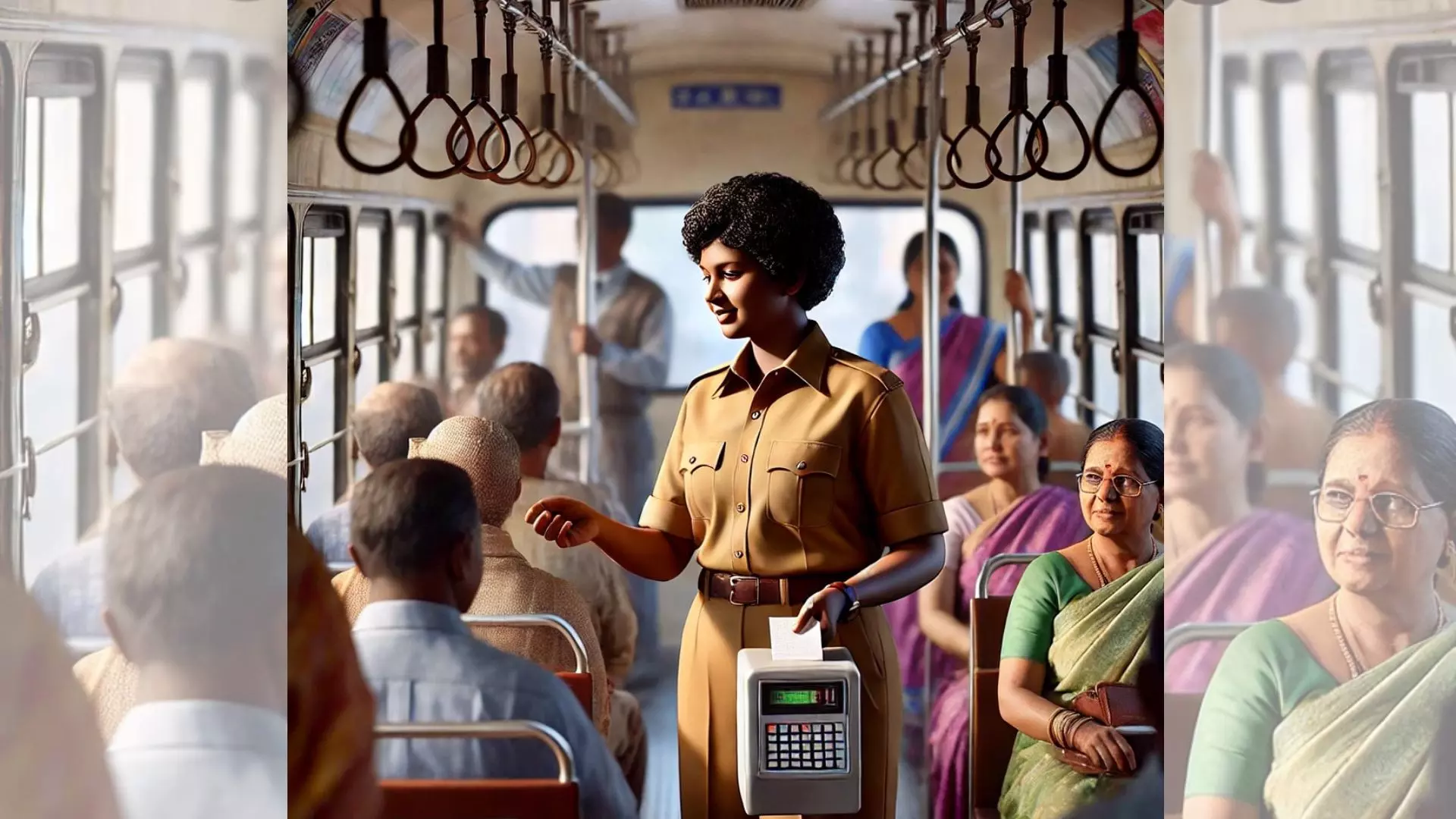Facing daily grind on buses with a smile
Hyderabad’s RTC women conductors work tirelessly, balancing long shifts and household duties, proving resilience in a system that overlooks them

Hyderabad: Hyderabad’s RTC women conductors work shoulder-to-shoulder with men — literally. They take up the same responsibilities as their male colleagues and endure the same physical strain, with no extra facilities. But unlike the men, their day doesn’t end with the last bus. Once their shifts end, they return home to household chores — in kitchens, in caregiving, in spaces that demand more from them than the 70-hour workweek Narayana Murthy so casually proposed. Yet, while men who clock in those hours are lauded for their ambition, these women receive no such recognition. Their resilience is assumed, their exhaustion overlooked.
“We might not have stamina, but we have immense patience,” notes K. Renuka when asked how women manage the same strenuous work as men. There are no period leaves, no promotions, no extra allowances — just the resolve to keep working, to keep proving their worth despite it all.
“If the cramps are too much, we just put up with it,” says a conductor, shrugging off the question as though it were irrelevant. So these women continue — not out of expectation, but out of their own sheer will and grit.
Renuka adds with a sigh, “We do the exact same work as the men, with no extra benefits. And yet people still call women the weaker sex.” Her colleague P. Swaroopa nods, stating, “Even if our husbands are supportive, most responsibilities at home still fall on us. You can call it double duty. A working woman will always be on double duty. That’s just how it is.” Double duty indeed. However, that double duty is usually unaccounted for, unpaid, and yet these women conductors speak of their dual responsibilities not as a complaint but as an accepted reality.
Their shifts, structured into two parts, are relentless. The first begins before dawn, at 5 am, requiring them to wake by 3.30 am. The second stretches into the night, ending at 9 pm. Some women return to homes where they are the sole breadwinners; others to families who rely on them not just for income but for the invisible, unpaid labour that keeps a household running. Rest is scarce, and pain — especially in the back, knees, and legs — is a constant.
Facilities at the depot also remain barebones at best. A conductor at a bus depot near Secunderabad gestures towards the rows of city buses behind her, each packed tighter than before since the government introduced free travel. “It has made our job much harder,” she says, adjusting the strap of her bag. “We are always on our feet. The doctors say walk and exercise, but how much more exercise do they expect after we stand all day?” she adds with a chuckle.
Unlike district buses, where conductors have designated seats, city bus conductors are left to brace themselves on their own, with most complaining about knee and back pain under the strain. The crew rooms at most of the bus depots offer little reprieve: a single Indian-style toilet and a couple of metal beds without mattresses that remain largely unused.
There has been much talk about the future of work, about the productivity and efficiency of women. However, Hyderabad’s RTC women conductors, like so many others, disprove and challenge these notions every single day. They operate in a world that was not built for them, yet they make it work.
“We are reaching the moon, aren’t we?” one conductor says, shaking her head at the irony of it all. “Why shouldn’t we do this job?” But the answer is already in their daily grind — one of resilience, silent victories, and proof that women don’t just belong in this space; they sustain it.

